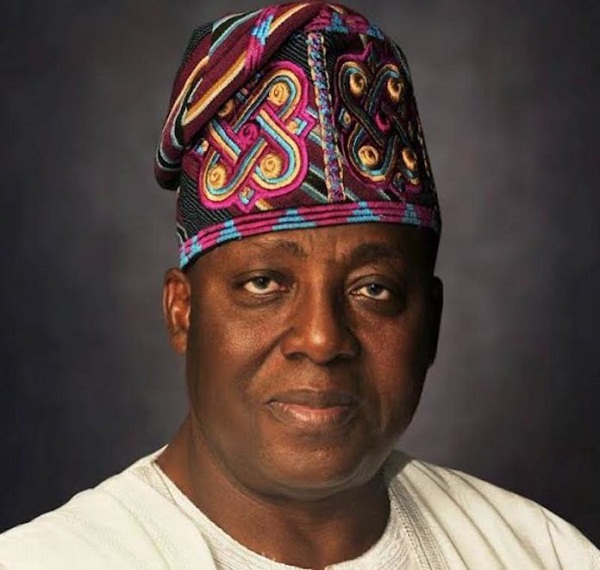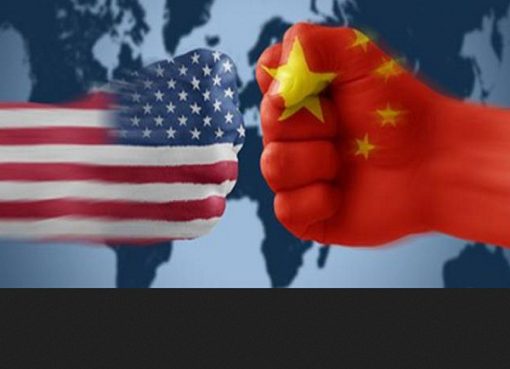CEO of Intertel, Dr. Abdlrazaq Shittu, speaks on the technological development in Nigeria, the need for strong government policy to drive technology growth and the impact of the company’s 30 years of entrepreneurial journey. excerpts:
Given your long years of experience in ICT and security services, how will you describe technology adoption and growth in Nigeria?
I started my telecommunication professional journey as a carrier room technician in training at the Nigeria External Telecommunications (NET) in 1979 before leaving to further my education in 1981. This often makes me to feel nostalgia whenever I remember what prompted me to leave NET. After my mandatory NYSC in 1988, I had a choice to work for notable oil and gas multinational corporations, but my father objected to the move on the grounds that it would offer limited technical experience and skills. He, however, encouraged me to work for T-CAS Nigeria Limited, an American Data Communication and Telecommunication Company. The estimated total pay at T-CAS was a huge concern for me, as my colleagues who worked in various corporate organisations earned ten times my pay.
My stint as an engineering trainee at T-CAS Nigeria Limited from 1988 to 1991 gave me the needed exposure in all facets of telecommunication, Information Technology (IT), and data communication. I gained immensely from the company owing to the fact that the firm was a breeding ground for cutting-edge telecommunication professionals. Some decades ago, the company pioneered data communication in Nigeria, providing Local Area Networks (LANs), Metropolitan Area Network (MANs), and Wide Area Network (WANs) in the days of reliance on PSTN connectivity spanning leased circuits and leased lines for affordability and wireless infrared communication links using multi-beam transmitters and imaging receivers that were first deployed by T-Cas for a defunct bank in the early 80s. So, I can say that I am an IT and Telecommunications professional with 34 years of proven experience.
Now, let me come back to your question about the level of technology adoption and growth in Nigeria considering my experience in Information and Communications Technology (ICT) and Security services. I would like to use Intertel as a major active player in the transformational journey of technology adoption in Nigeria. Today, Intertel has made remarkable grounds in areas such as satellite engineering, rural telephony, communication tests and measurements, Internet Protocol (IP) connectivity, Radio Frequency (RF) solutions, fiber deployments, network optimization, lawful interception and mediation systems, digital transformation initiative solution delivery, data center design and deployment, cellular backhauling, NFV/SDN-WAN, and EOD and SWAT solutions among others. This has made Intertel a primary System Integrator and one-stop center for high-tech niche telecommunication and IT.
In describing technology adoption and growth in Nigeria, Karl Marx asserted that capitalism does not work to develop technology, in general, instead, capitalism develops only those types of implements that aid its economic, social, and potential interests, traversing military defense capabilities or otherwise. Capitalism sometimes inhibits the development of technologies that do not aid its development. Technology adoption broadly refers to the acceptance and successful integration of new innovations into the delivery of commercial and non-commercial processes. The curve of diffusion of technologies in Nigeria is never stagnant, and it is somewhat proportionate to the western world’s adoption rates, especially in economic and social citizenry interests such as electronic commerce and mobile commerce as a test case.
Body of knowledge on adoption or diffusion of novel technologies emphasises that the rate at which electronic commerce, mobile commerce and payment systems develop depends on a struggle between rapid change and natural barriers to new technologies or service acceptance. In the last two decades, novel technologies such as information technology (IT) are globally regarded as critical implements that enhance the productivity and competitiveness of the economy of any country.
It is common knowledge that novel technologies across defense, IT, and manufacturing now have significant impacts on the productivity of organisations and countries. These effects can only be fully actualised if and only if technologies across boards are widely spread and used. In the case of IT, telecommunication, wireless manufacturing robotics, wireless health care systems, and autonomous vehicle control and warehousing, I can boldly declare that Nigeria has moved upscale and is above average when compared with the developed nations in terms of citizens and corporates. Conversely, Nigeria lags in a number of other significant areas such as technology, space, biotechnology, defense, nuclear engineering technology, missiles, unmanned defense/intelligence aircraft, undersea defense technology, and so on.
Describing technological growth in Nigeria can be complex, and if care is not taken, it could lead into a search and evaluation of the available and related literature. The existing body of knowledge revealed the existence of technology in Nigeria and Africa prior to the advent of European powers. Colonialism truncated and hindered the growth of traditional skills and techniques utilised during the pre-colonial economic era.
Archeological evidence revealed the existence of iron technology of the NOK culture around Bauchi, Kano, Kaduna, Ajaokuta, Jos, and Daima during the second century. As complex as the nuclear technology appears, nuclear power was invented in Africa about two billion years ago; nuclear fission reactors were unearthed in the Oklo area of Gabon. Philip Emeagwali, a Mathematician, invented the formula that allows many computers to communicate at once, without which the internet may never have evolved. Much of the technological feats in Nigeria and in Africa are products of individual efforts, whereas in the developed world, innovative technologies are propelled by the state in order to promote economic and military superiorities.
The lack of technological advancement and growth is mainly due to the systematic destruction of institutions, especially educational institutions, and policies. The developed world spends fortunes on the promotion of the Science, Technology, Engineering and Mathematics (STEM) educational system rather than the traditional educational system that instills knowledge only in students. STEM educational system is a system that is focused on stimulating the brains of the students from a tender age to give their brains free reigns to create rather than replicate the common knowledge. Technology growth in Nigerian is woeful because we have remained a cargo-driven economy.
What do you think the government should do to enhance technology development both in the public and private sector businesses in Nigeria?
I prefer to rephrase the question as, ‘What do you think the government should do to enhance science and technology development in Nigeria?’ I have added science to your question and removed the private sector because science integrates the systematic study of the structure and behavior of both the physical and the natural environment through observation and experiments, whereas technology is the resultant application of scientific knowledge for practical purposes.
For instance, let us examine the race to the development of Covid-19 vaccines during the pandemic. The race to develop and produce COVID-19 vaccines started in 2019 till December 2020. Within 12 months, Food and Drug Administration (FDA) issued emergency use authorisation for Pfizer-BioNTech Covid-19 vaccines. Similarly, the World Health Organization (WHO) also approved the use of mRNA vaccines. The mRNA vaccines were developed and manufactured with precision technology, unlike the traditional vaccine development and production. The developed nations, permeating the United States of America, Canada, UK, India, China, Japan, and others, were able to respond with the invention and production of these vaccines because science and technology are well developed and in synch in those countries.
To enhance science and technology in Nigeria, there must be a strong government policy. This policy will foster trust in government competence, and invest people, money, and materials into the STEM education system. This will help to connect our traditional methods with up-to-date technology identified in developed countries. To achieve this, government must ensure political, and economic stability, adequate infrastructure, serious investments in education and research, and eradication of corruption in all ramifications.
How will Intertel’s business impact technological development in Nigeria, to achieve the country’s digital transformation goals?
As a system integrator of 30 years and stop-center for hi-tech telecommunication and IT solutions in synergies with high-net-worth technological individuals from Israel, India, the USA, Canada, and Europe, we have made it a tradition that our partners transfer technologies to our resource personnel. Our partners involve our resource persons in the in-depth technological process, and we also ensure continuous educational developments in the field of IT and Telecommunication. To achieve the digital transformation goals of the Nigerian Government, the involvement of those who are well entrenched in the anatomy of digital transformation initiatives is very important.
Digital transformation is seen as a fundamental transition to a civil society driven by internet technologies. Digital transformation is about technology, data, process, and organizational change.
Digital transformation reiterates a cultural change that requires organizations or governments to continually challenge the status quo, experiment and get comfortable with, and eventually succeed. Digital transformation is the process of utilizing digital technologies and the internet to create new or modify existing business/governance processes, culture, and citizens’ experiences to achieve varying governance processes. Digital transformation requires talent. Assembling the right team in four key domains (technology, data, process people, and organizational change capacity) may be the most important step that a government contemplating digital transformation can undertake. Each of these domains requires a certain set of skills. In the technology domain, you need people with a remarkable depth and breadth of technology and the ability to work together with the government representatives and departments. Leaders of the technology domain must have great communication skills and must possess strategic sense. We will need this same breadth and depth of knowledge in the data domain of digital transformation.
Intertel has the reach to the right professionals and organisations that can assist the Nigerian government to achieve the desired goals of actualizing digital transformation initiatives if approached for synergy. Government should welcome synergies locally or internationally in the IT and telecommunication world for a good outcome.
As a company providing premium ICT and Security services, what are your core business areas of service provision, and what are some of the challenges that you faced in the cause of providing such services?
Our core areas of business include: Satellite Engineering – Cellular backhauling, IP Connectivity, Satellite on the Moves; Fiber Deployment and integrity testing – FTTX/FTTH; Rural Telephony – Network Topology Design, Satellite-Hub Selection Criteria, Solar, RAN, VSATs for backhauling, Hub-Baseband Equipments, and Hub RF Chain designs; and Communication Test and Measurements – Drive-Test (Quality Assurance), OTDR, Ethernet Testers, Power Meters, Optical Network Management System (Remote Fiber Test System), Visual Fault Locator, Optical Fiber Identifier, and Light Source.
Others include: Data Center Design and Implementation – Expert Consulting, Designing, Supervision, Commissioning, and Managing Cutting-Edge Datacenters; Actionable Intelligence and Smart Security – Lawful Interception & Mediation Systems, Last-mile Actionable Intelligence Solutions, EOD & SWAT Robotic Solutions, and Counter-Drone Solution; Sales of IT and Telecommunication infrastructure equipment and accessories – Closures, Satellite and VSAT Antennae, BUCs, SSPAs, LNBs, Tracking Systems, Modems, FDN Accessories & Solutions, Splitters, Passive Optical Components, FTTX Solutions, and Optical Equipments, among other areas.
Could you share the success stories and their impact on customers’ businesses?
We have several success stories to share as a telecommunication engineering solution delivery company, but one of the most laudable was the risk taken to reduce the price of MHZ&MBPS in 2008 when we delivered an inclined orbit solution to telecom providers and some Internet Service Providers (ISPs) with the same Service Level Agreement (SLA).
A second most nostalgic was our partnership with Skyvision in 2008 to deliver IP Connectivity to 90 per cent of the telecom operators to power the blackberry services, before undersea cables arrived our shores at unprecedented pricing per MBPS.
A third feat that gives me joy was the premier design and implementation of rural telephony to provide 2G services in the remotest parts of Nigeria in the year 2000/2001 for a renowned GSM Operator. Being the country representative of Skyvision in Nigeria, Intertel worked in conjunction with Skyvision, Gilat Satellite Networks, and Huawei. The rural telephony was implemented with Gilat’s SkyEdge Hub and for the last 11 years, Intertel has been giving the maintenance backup till date.
Insecurity has been a challenge to the Nigerian government. As a security solution company, what aspect of security solutions will you advise the government to invest more in, to address the country’s security challenges?
The Nigerian government has greatly invested to some levels in actionable intelligence solutions but still needs to do more in terms of completing the most critical project like the National Identity Card Scheme, and simultaneously creating a world-class database in-country and in-cloud.
The federal government should through an act of congress, enforce the establishment of smart cities in the real sense of it in which all local governments, states, and federal departments are linked to designated command and control centers.
Above all, federal government should do all it can to enable consistent power supply in Nigeria, change the economy back to a manufacturing economy, strengthen the educational institutions like they were in the 60s, and 70s, re-awaken the economy by returning to a manufacturing economy, strengthen the institutions, and enhance infrastructures like access to data, roads, and others.
By acts of the congress, the federal government should make 100 per cent access to the Internet and data through all available means of fibre, satellites, radios, and others a right of every citizen.
Technology is evolving by the day, with the emergence of new technology solutions like AI, IoT, Robotics, Big Data, and Data Analytics. How has Intertel tapped into some of these emerging technologies to enhance customer experience?
In telecommunication and IT, you must continue to get educated in the trends, or else you will crash out. Intertel as a company and in the human resources is committed to being well-informed. To continue to be entrenched in the stream of evolution in IT and telecommunications, I went back to school in 2014 for my doctorates in Information Technology with a great focus on the irreversible future of IT. Also, two or three of our key personnel have been sponsored to acquire more understanding about new technological solutions.
To tap into the evolutions, we ensure continued education through Webex, seminars, in-house training, certifications, and so on. Furthermore, we continue to partner with relevant international partners with strength in the evolving capabilities in AI, IoT, Robotics, Big Data, Edge Computing, NFV/SDN, Autonomous Vehicles, and Biotechnology.
Intertel combines diverse domain knowledge within wireless networks, wired networks, digital transformation initiatives, software development, and government security to deliver precision solutions. How have all these helped in sustaining Intertel’s business over the years?
Parts of this I have answered in the previous question. Our continued education and understanding of the evolutions have helped us to understand the directions of the industry, ability to create blue ocean strategies, while constantly broadening the front-line of our funnels. The sustenance of our integrity and partnership relationship has been a great catalyst to seeing us through 30 years in Telecommunication and IT. Out of every 10 relevant high-tech companies coming from an advance technology-driven country, I am confident that 7 will aspire to work with Intertel.
Intertel offers industry-leading products and services to its clients, cutting across Mobile Operators, ISPs, Banks, Government, and Broadcasting organisations. How will you describe the competition in service offering?
I have in the earlier years identified frivolity in business, and I try with every bit of my energy to identify and avoid them completely. We also tried to always identify blue oceans and red oceans in products offerings and customer terrains. Before multitudes come, Intertel would have moved, so I can say competition leads to red oceans and it has helped us fashion out strategies to manage it.
Does Intertel have global business relationships with technical partners and to what extent is the global partnership enhancing Intertel businesses in Nigeria?
Yes, since 2008 we have partnered with strong corporates in the areas of our services and they have helped create blue oceans in products and assisted in producing several world-class engineers and technicians. Today, these experts are not only working with some of our partners in the developed nations, they are also exposing Intertel to the evolution of the industry.
Source: Thisday










